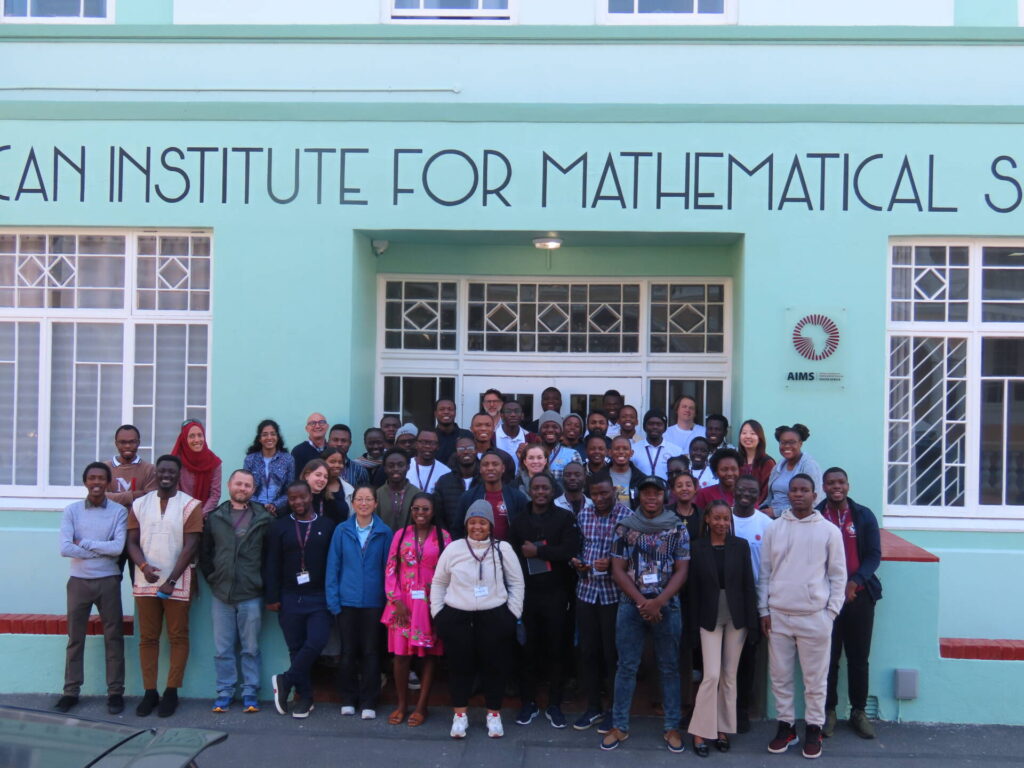MMED 2024: Another successful edition!
The 13th edition of the annual Clinic on the Meaningful Modelling of Epidemiological Data (MMED), held at the African Institute for Mathematical Sciences (AIMS-SA) in Muizenberg, South Africa, brought together a talented cohort of students and researchers to delve into the world of data-driven infectious disease modeling. Organized by SACEMA and AIMS-SA, in collaboration with the International Clinics on Infectious Disease Dynamics and Data (ICI3D) Program, this event highlighted the importance of integrating mathematical models with epidemiological data.
Generous sponsorships and scholarships provided by SACEMA, AIMS-SA, LSHTM, MIDAS, and CEMA ensured another successful edition of the Clinic!

A total of 13 external applicants were selected through a rigorous application process. In addition, the course was incorporated into the AIMS program. Masters students from the AI cohort (14) and the Mathematical Science cohort (20) were enrolled in the course, as well as one AIMS/Stellenbosch University Biomath Honours student.
The Clinic was extended from a 2-week course to include an additional week for the AIMS students.
Week 0: Modeling in Medicine and Public Health (MMedPH)
Week 0 focused on applying mathematical models to address infectious disease problems with a focus on linking models to relevant data. Students learned about infectious disease dynamics, epidemiological aspects, and developed research project ideas integrating data and modeling. In the following weeks, students participated in the MMED workshop, presenting their proposed research projects in data-driven infectious disease modeling within the public health discipline.
Week 1: Meaningful Modeling of Epidemiological Data (MMED)
The first week of the clinic featured lectures, computer lab sessions, and plenary lectures. On Monday and Tuesday, participants presented their research during poster sessions. Throughout the week, they were introduced to project topics and assigned to groups based on their selections.
Participants applied their new knowledge of integrating mathematical models with epidemiological data in their project work. These projects allowed them to work in small multidisciplinary groups on meaningful, open-ended questions about infectious disease dynamics. The project topics included:
- COVID-19 decision making
- Data Quality and (Now|Fore) Casting
- Evaluating interventions – HIV in Harare
- Impact of population size on measles dynamics
- Impact of vaccine homophily and disparities
- Investigating assumptions with model comparisons
- Modelling human behavior
- Sources of seasonality
Week 2: MMED Project Focus
In week 2, the focus shifted to advancing the projects, with additional lectures, an introduction to GitHub, and live coding sessions.
Epidemiological modeling for policy uses mathematical and computational techniques to simulate disease spread, incorporating data on transmission, demographics, and behavior to inform public health decisions. These models help policymakers design strategies, allocate resources, and communicate risks, aiming to minimize health, social, and economic impacts. A special session on “Modelling for Policy” featured experts like Prof Juliet Pulliam, Prof Thumbi Mwangi, and Dr Rebecca Borchering, allowing participants to engage with leaders in the field. The week concluded with presentations on the progress of the group projects.
Thank you to everyone who contributed to making this event a success! 🌟👏


